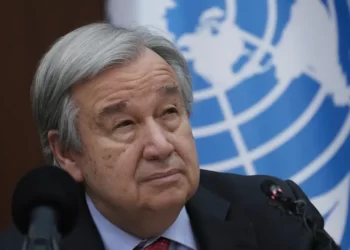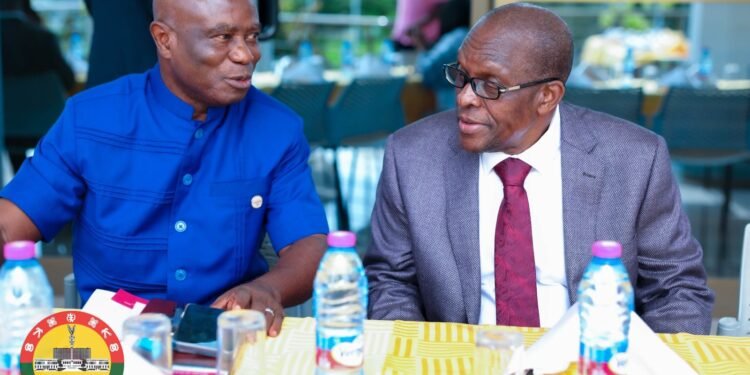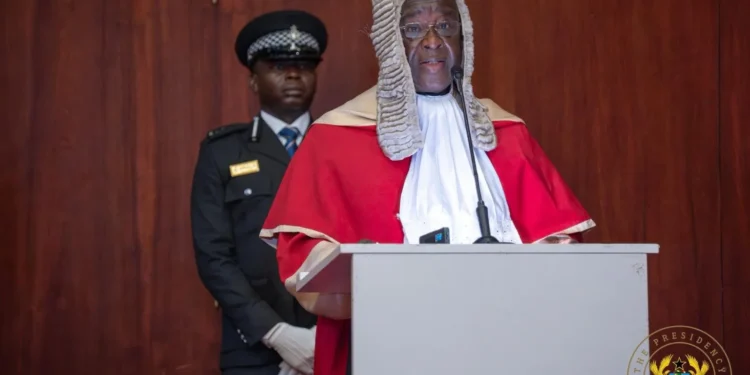The severe drought in Zambia, described as “crippling” by Collins Nzovu, the country’s Environment Minister, poses a significant threat to millions of people, exacerbating issues such as hunger, electricity shortages, and economic instability.
This situation underscores the broader impact of the climate crisis on developing countries, particularly those heavily reliant on agriculture and natural resources.
The drought has led to a substantial crop failure, primarily affecting maize, the staple crop for many Zambians.
This failure is compounded by the fact that the drought occurred during the critical tasseling stage of maize growth, when rainfall is crucial for grain filling.
As a result, there is little hope for salvaging most of the crop, leading to potential starvation and hunger among those dependent on agriculture for their livelihoods.
Nzovu said, “What has happened this year is that we received well below the normal rainfall. This has been a crippling drought.”
He added, “We’ve had a huge crop failure. A lot of people who depend on maize, who depend on agriculture for their very survival, face starvation and hunger.”
The drought has also affected Zambia’s ability to import food from neighboring countries, such as South Africa and Tanzania, due to similar challenges faced by these regions.
Normally, Zambia enjoys a food surplus that it exports to countries like Malawi, Zimbabwe, and the Democratic Republic of the Congo (DRC). However, the current situation has reversed this dynamic, highlighting the interconnectedness of regional food security.
The drought has severely impacted Zambia’s hydroelectric power generation, which accounts for about 95% of the country’s electricity. The reduced water levels have halved the capacity of hydroelectric plants, resulting in extended power cuts.
This situation has further strained the country’s economy and social fabric, adding to the challenges posed by the drought itself.
To address these issues, Zambia is taking steps such as declaring a national disaster, implementing strict water usage measures, and exploring the diversification of crops to include more drought-resistant varieties like cassava and sorghum.
Nzovu said that the plight of Zambia was a foretaste of the disasters that would increasingly afflict the region as climate breakdown took hold.
He added, “Look at all the factors which will tell you there has really been a change in the climate. There is no doubt at all.”
Additionally, the government is seeking to leverage Zambia’s mineral wealth, including cobalt and copper, for economic recovery and to support the global transition to low-carbon energy systems.
However, these efforts are complicated by the country’s significant debt burden, exacerbated by global events such as the war in Ukraine.
Nzovu Emphasizes Urgent Need For International Assistance

Nzovu emphasized the urgent need for international assistance, particularly from developed countries, to help mitigate the effects of the climate crisis in developing nations.
He called for reforms in climate finance to ensure that countries in Africa and other vulnerable regions receive adequate support to cope with the impacts of climate change.
The upcoming UN summit in Azerbaijan, scheduled for November, aims to establish new goals for climate finance, although discussions are currently fraught with difficulties due to political considerations and disagreements over the distribution of funds.
Nzovu stated that progress must be made on the issue as a matter of urgency.
He warned, “If the whole world, especially the developed world, will not come to the table, and provide cheaper financing, adequate financing, then we will be left behind.”
This situation in Zambia serves as a warning of the escalating threats posed by the climate crisis to regions worldwide, underscoring the necessity for concerted international action to address these challenges effectively.
Collins Nzovu’s statement reflects the urgency of addressing climate change not just for Zambia but for the entire region.
READ ALSO: Allies Of Starmer To Replace Retiring Labour MP’s






















